The subcompact SUV segment has gained immense popularity in recent years, with consumers seeking a blend of practicality, style, and performance. Among the frontrunners in this category are the Audi Q2 and the VW T-Roc. Both vehicles share a similar DNA, given their close familial ties under the Volkswagen Group banner. Yet, they each carve out their unique identity in the fiercely competitive market. Here, we delve into a detailed comparison of these two dynamic SUVs.
Audi Q2 vs VW T-Roc - Differences and prices compared
Compare performance (300 HP vs 150 HP), boot space and price (24900 £ vs 26400 £ ) at a glance. Find out which car is the better choice for you – Audi Q2 or VW T-Roc?
Design and Dimensions: Standing Out in Style
The Audi Q2 boasts a bold and edgy design, characterized by its distinctive octagonal grille, well-defined lines, and sharp LED headlights. With a length of 4208 mm, width of 1794 mm, and height of 1508 mm, it presents a compact yet muscular exterior.
In contrast, the VW T-Roc has a slightly larger stature, measuring 4236 mm in length and 1819 mm in width, which contributes to its more robust appearance. Its high-mounted headlights and dynamic silhouette offer a versatile look that appeals to a broader audience. The T-Roc stands at a height of 1584 mm, giving it a commanding presence on the road.
Engine Options and Performance: Power Meets Efficiency
Both the Q2 and T-Roc are available with a selection of petrol and diesel engines, ensuring that performance aligns with consumer needs. The Q2 offers engines ranging from 116 to 300 HP, with turbocharged options that provide a thrilling acceleration. The sporty variant can sprint from 0 to 100 km/h in just 4.9 seconds, emphasizing Audi's commitment to performance.
The T-Roc presents a slightly lower power band, with options that peak at 300 HP as well. However, its engines are meticulously tuned for efficiency, with the smallest engine delivering an impressive fuel consumption of just 4.7 L/100 km. The acceleration figures show a slightly slower response, with the best model achieving 0-100 km/h in 4.9 seconds, mirroring its Audi counterpart.
Transmission and Drive: Seamless Shifts and Versatile Handling
Both SUVs offer manual and automatic transmission options, including the highly praised dual-clutch automatic gearbox. The Q2 features both front-wheel and all-wheel drive configurations for versatile handling on various terrains.
Similarly, the T-Roc offers the same transmission choices, allowing drivers to select their preferred driving experience. The Quattro all-wheel-drive system available on the Q2 gives it a slight edge in terms of dynamic handling and stability, particularly in challenging road conditions.
Interior and Technology: Comfort Meets Innovation
Inside, the Audi Q2 showcases a blend of luxury and advanced technology. Its minimalist cockpit is intuitive, featuring a virtual cockpit display and high-quality materials throughout. With a trunk capacity of 405 liters, it provides ample space for cargo while maintaining a compact feel.
The T-Roc, on the other hand, prioritizes practicality with a slightly larger trunk capacity of 445 liters. It's also equipped with the latest infotainment features, including a user-friendly touchscreen interface and optional digital cockpit, ensuring connectivity and convenience on the go.
Safety Features: A Commitment to Protection
Both vehicles are equipped with a suite of safety features that have earned them high ratings in crash tests. Standard offerings include adaptive cruise control, lane-keeping assist, and autonomous emergency braking. Audi's top-tier safety technology ensures the Q2 is well-prepared for any driving scenario, while the T-Roc matches those capabilities closely.
Conclusion: The Verdict
Ultimately, the choice between the Audi Q2 and VW T-Roc hinges on personal preferences. The Q2 leans towards luxury and sportiness, appealing to those who prioritize brand prestige and refined performance. Meanwhile, the T-Roc stands out with its practicality, slightly larger dimensions, and excellent value proposition.
Both SUVs represent the best of their segment, offering a blend of style, performance, and modern technology. Whichever you choose, both the Audi Q2 and the VW T-Roc promise a driving experience that is hard to match in today’s competitive landscape.
Here’s where it gets real: The technical differences in detail
Costs and Efficiency:
Looking at overall running costs, both models reveal some interesting differences in everyday economy.
Audi Q2 has a minimal advantage in terms of price – it starts at 24900 £ , while the VW T-Roc costs 26400 £ . That’s a price difference of around 1581 £.
Fuel consumption also shows a difference: Audi Q2 manages with 4.80 L and is therefore a bit more efficient than the VW T-Roc with 5.50 L. The difference is about 0.70 L per 100 km.
Engine and Performance:
Under the bonnet, it becomes clear which model is tuned for sportiness and which one takes the lead when you hit the accelerator.
When it comes to engine power, the Audi Q2 has a clearly edge – offering 300 HP compared to 150 HP. That’s roughly 150 HP more horsepower.
In acceleration from 0 to 100 km/h, the Audi Q2 is decisively quicker – completing the sprint in 4.90 s, while the VW T-Roc takes 8.90 s. That’s about 4 s faster.
There’s also a difference in torque: Audi Q2 pulls evident stronger with 400 Nm compared to 250 Nm. That’s about 150 Nm difference.
Space and Everyday Use:
Whether family car or daily driver – which one offers more room, flexibility and comfort?
Both vehicles offer seating for 5 people.
In curb weight, Audi Q2 is somewhat lighter – 1330 kg compared to 1465 kg. The difference is around 135 kg.
In terms of boot space, the VW T-Roc offers a bit more room – 475 L compared to 405 L. That’s a difference of about 70 L.
When it comes to payload, VW T-Roc minimal takes the win – 515 kg compared to 510 kg. That’s a difference of about 5 kg.
Who wins the race in the data check?
The Audi Q2 is clearly superior overall in the objective data comparison.
This result only shows which model scores more points on paper – not which of the two cars feels right for you.
Costs and Consumption
View detailed analysis
Engine and Performance
View detailed analysis
Dimensions and Body
View detailed analysis
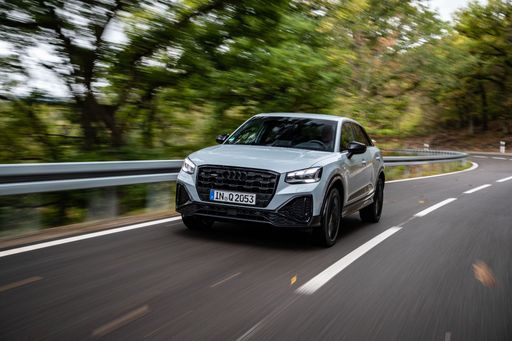
Audi Q2
Audi Q2
The Audi Q2 packs Audi’s premium attitude into a compact, cheeky package that turns city streets into a runway for tasteful design and clever practicality. It’s an easy car to live with thanks to an upscale cabin, composed manners and sprightly handling, and while it won’t satisfy someone chasing sports-car thrills, it’s a smart, stylish pick for buyers who want substance with a wink.
details
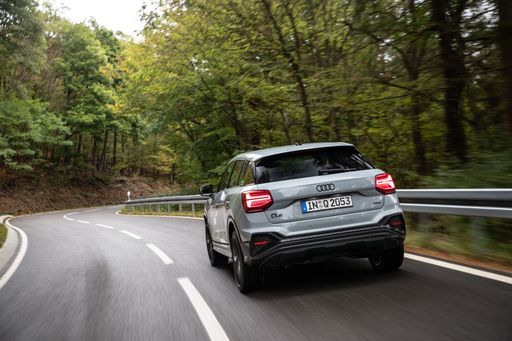
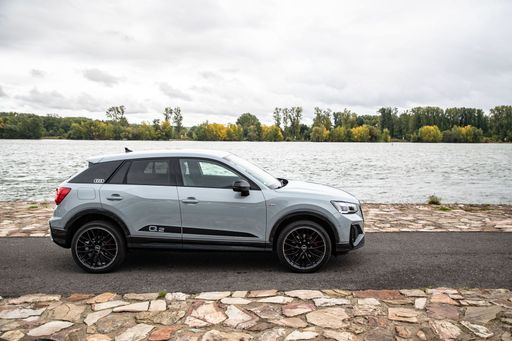
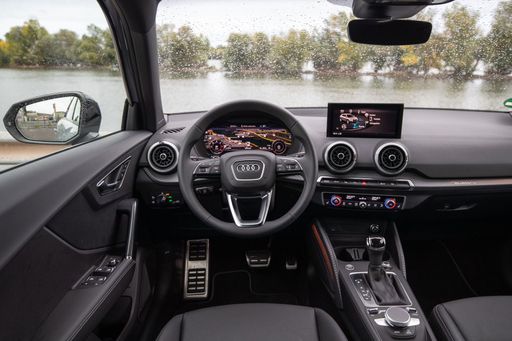
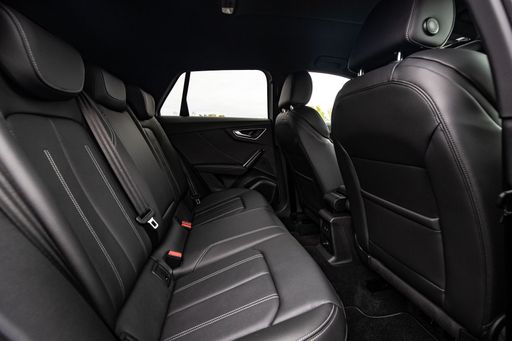
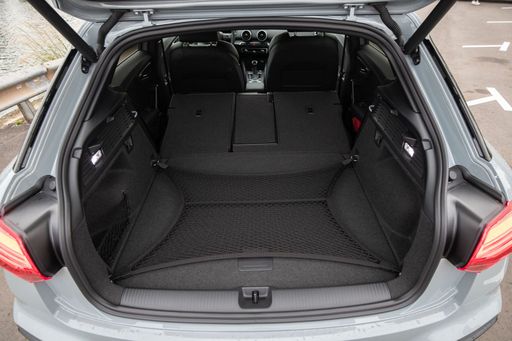
VW T-Roc
The VW T-Roc mixes cheeky, coupe-like styling with the everyday sense and space of an SUV, so it looks fun without sacrificing family sense. It’s a likeable all-rounder with tidy road manners and plenty of personality, ideal if you want a car that’s practical enough for chores but entertaining enough to enjoy.
details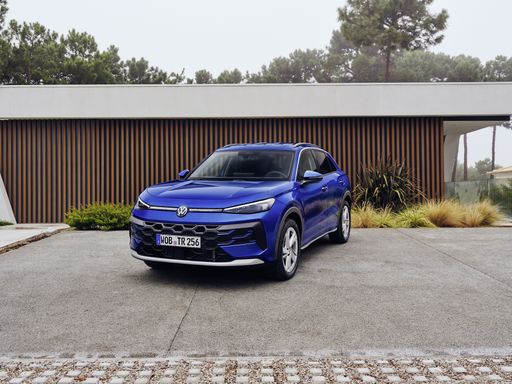
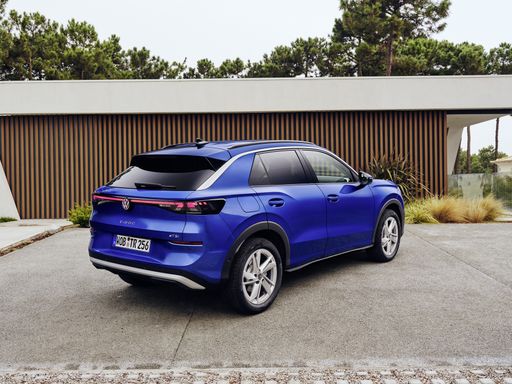
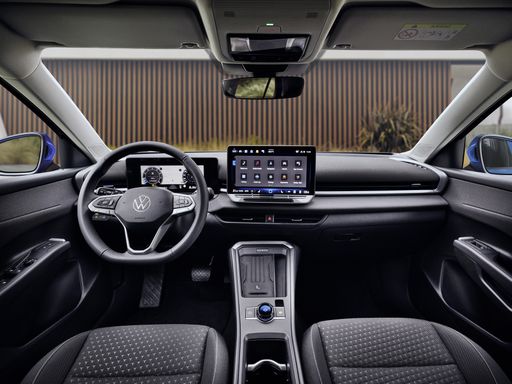
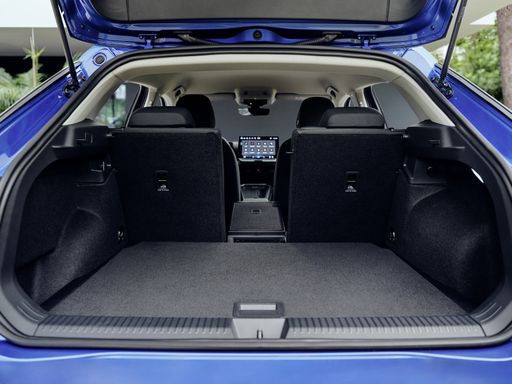
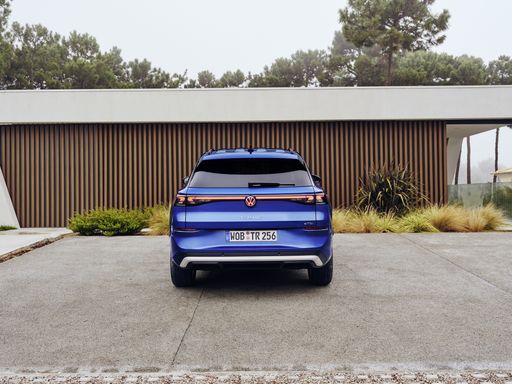
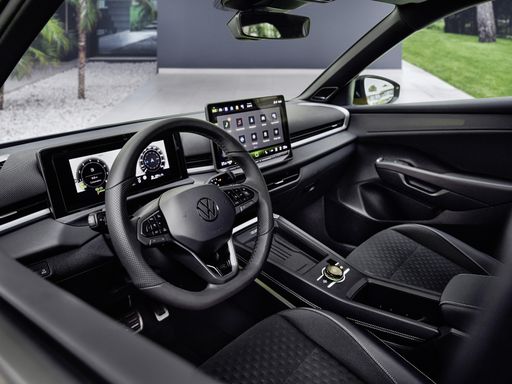
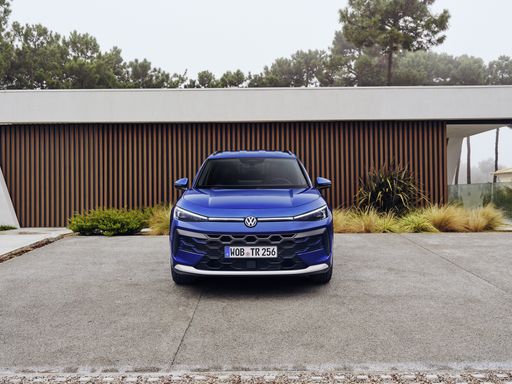
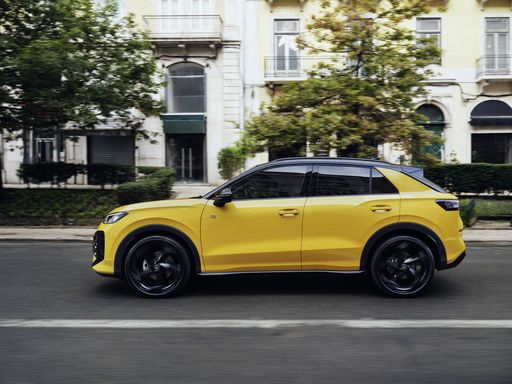
Costs and Consumption |
|
|---|---|
|
Price
24900 - 43600 £
|
Price
26400 - 38600 £
|
|
Consumption L/100km
4.8 - 8.1 L
|
Consumption L/100km
5.5 - 6.3 L
|
|
Consumption kWh/100km
-
|
Consumption kWh/100km
-
|
|
Electric Range
-
|
Electric Range
-
|
|
Battery Capacity
-
|
Battery Capacity
-
|
|
co2
127 - 183 g/km
|
co2
126 - 143 g/km
|
|
Fuel tank capacity
-
|
Fuel tank capacity
50 L
|
Dimensions and Body |
|
|---|---|
|
Body Type
SUV
|
Body Type
SUV
|
|
Seats
5
|
Seats
4 - 5
|
|
Doors
-
|
Doors
5
|
|
Curb weight
1330 - 1610 kg
|
Curb weight
1465 - 1539 kg
|
|
Trunk capacity
355 - 405 L
|
Trunk capacity
284 - 475 L
|
|
Length
-
|
Length
4373 mm
|
|
Width
1794 - 1802 mm
|
Width
1811 - 1828 mm
|
|
Height
-
|
Height
1573 mm
|
|
Max trunk capacity
-
|
Max trunk capacity
1350 L
|
|
Payload
450 - 510 kg
|
Payload
368 - 515 kg
|
Engine and Performance |
|
|---|---|
|
Engine Type
Petrol, Diesel
|
Engine Type
Petrol, Petrol MHEV
|
|
Transmission
Manuel, Automatic
|
Transmission
Manuel, Automatic
|
|
Transmission Detail
Manual Gearbox, Dual-Clutch Automatic
|
Transmission Detail
Manual Gearbox, Dual-Clutch Automatic
|
|
Drive Type
Front-Wheel Drive, All-Wheel Drive
|
Drive Type
Front-Wheel Drive
|
|
Power HP
116 - 300 HP
|
Power HP
115 - 150 HP
|
|
Acceleration 0-100km/h
4.9 - 10.5 s
|
Acceleration 0-100km/h
8.9 - 12.3 s
|
|
Max Speed
-
|
Max Speed
196 - 212 km/h
|
|
Torque
200 - 400 Nm
|
Torque
200 - 250 Nm
|
|
Number of Cylinders
3 - 4
|
Number of Cylinders
3 - 4
|
|
Power kW
85 - 221 kW
|
Power kW
85 - 110 kW
|
|
Engine capacity
999 - 1984 cm3
|
Engine capacity
999 - 1498 cm3
|
General |
|
|---|---|
|
Model Year
2025
|
Model Year
2024 - 2025
|
|
CO2 Efficiency Class
D, F, E, G
|
CO2 Efficiency Class
E, D
|
|
Brand
Audi
|
Brand
VW
|
What drivetrain options does the Audi Q2 have?
The Audi Q2 is offered with Front-Wheel Drive or All-Wheel Drive.
